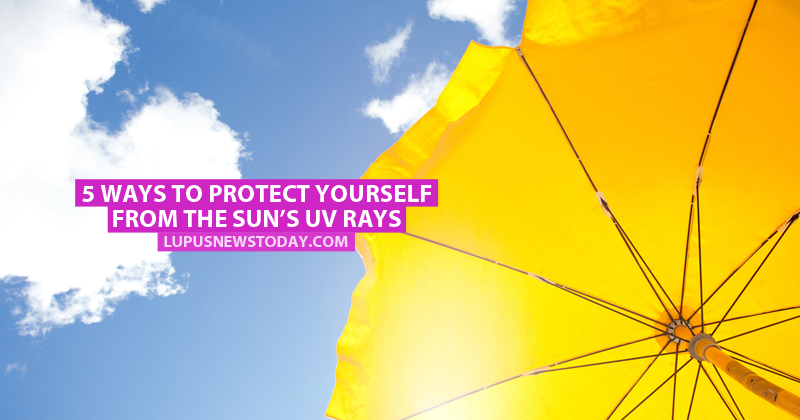5 Ways to Protect Yourself From the Sun’s UV Rays

Sun exposure and ultraviolet lights can trigger many unpleasant symptoms for lupus patients like skin rashes, joint pain, fatigue and swelling of internal organs. With help from healthline.com, we’ve put together some tips and tricks to keep you safe from the sun this summer:
Sun Screen
Try to limit the time you spend outside during peak hours (11am to 2pm), and if you do need to go out, wear a broad spectrum sunscreen on any exposed skin. Apply the sunscreen liberally (not forgetting your neck and behind your ears) about 30 minutes before you go outdoors and reapply regularly (every two to three hours, more often if you’re sweating or going swimming). Remember to apply sunscreen even if it’s cloudy.
UV Protective Clothing
Wearing a hat and UV-protective clothing that covers your legs and arms will also help to limit your exposure to the sun’s rays. Thin natural fiber clothing tends to allow UV rays to filter through them, whereas thicker manmade fiber clothing blocks UV rays.
MORE: Read our list of nine important facts about lupus you might not know.
Take Shade
We don’t want you to miss any outdoor fun, but when possible, try to sit or stand in the shade. Take a parasol out with you if you’re not sure if there will be any coverage.
Beware of Phototoxicity
As well as triggering lupus symptoms, the UV rays of the sun may also react with some medications. Speak to your doctor about the medications you’re taking and ask about the risks of UV exposure.
Indoor UV Light
Don’t forget that indoor lighting can often come from UV sources. Replace UV lights in your home and ask your workplace to replace any if they exist. Avoid sunbeds and photocopying machines.
MORE: Discover some tips for living well with lupus.
Lupus News Today is strictly a news and information website about the disease. It does not provide medical advice, diagnosis or treatment. This content is not intended to be a substitute for professional medical advice, diagnosis, or treatment. Always seek the advice of your physician or another qualified health provider with any questions you may have regarding a medical condition. Never disregard professional medical advice or delay in seeking it because of something you have read on this website.





